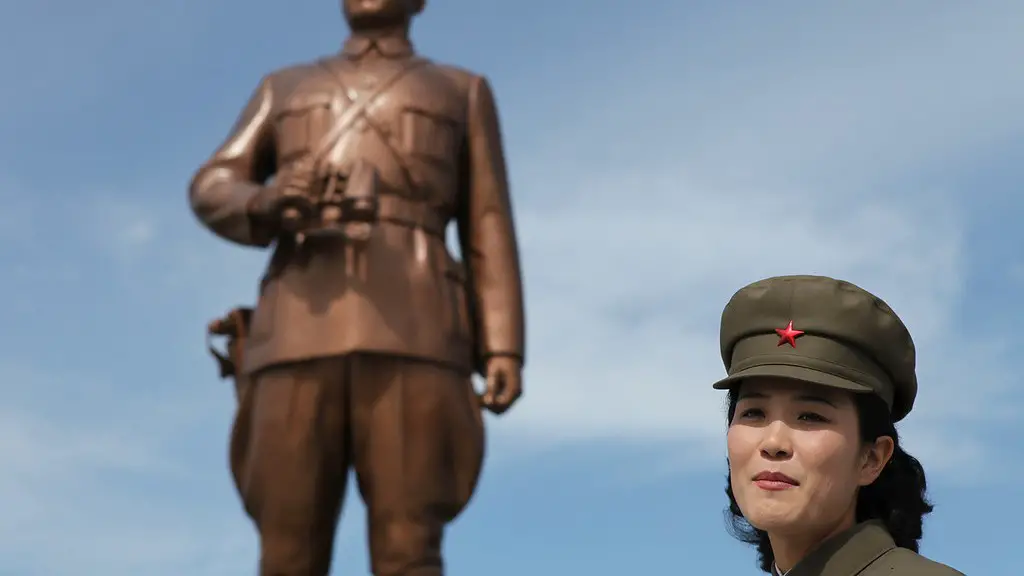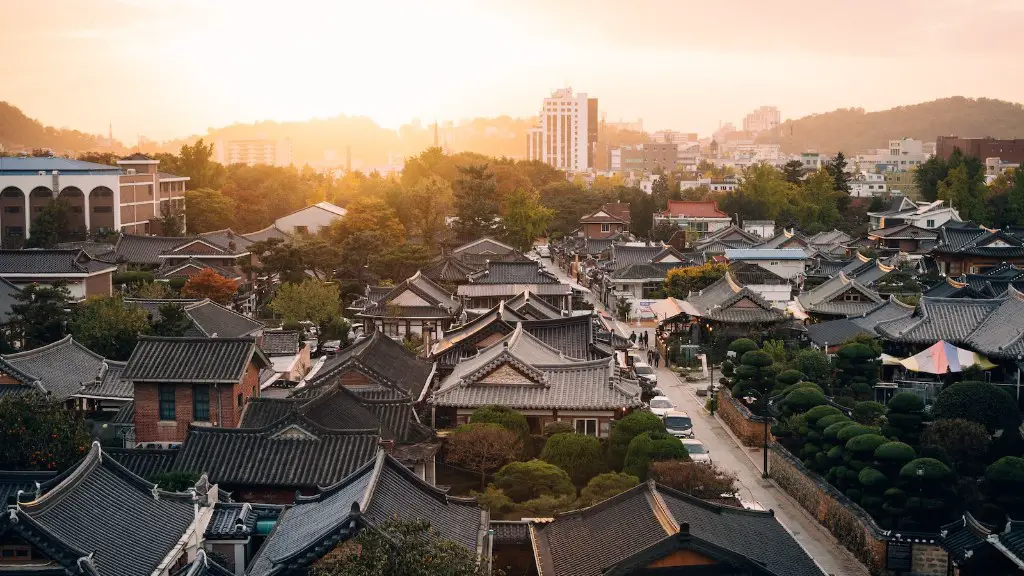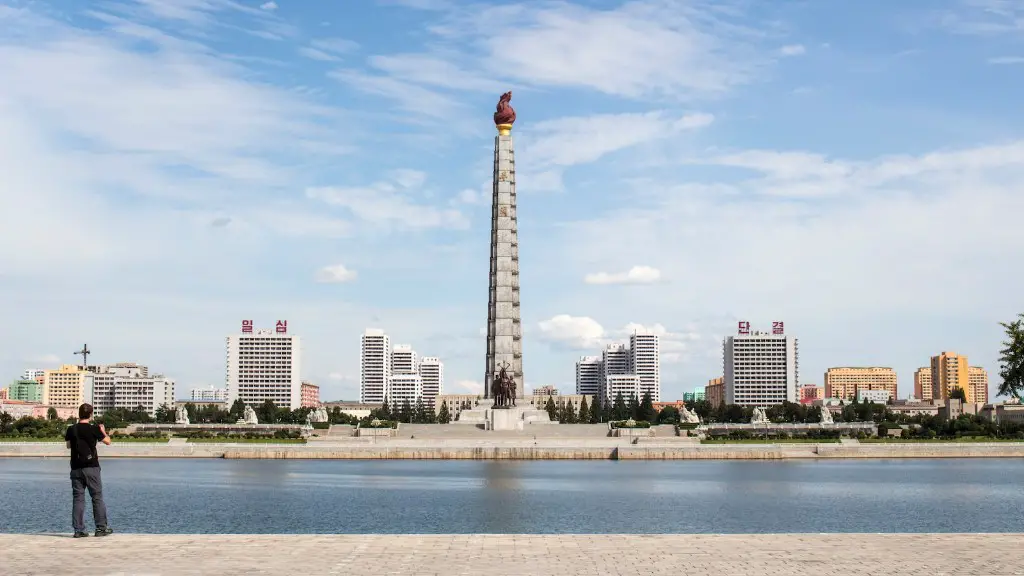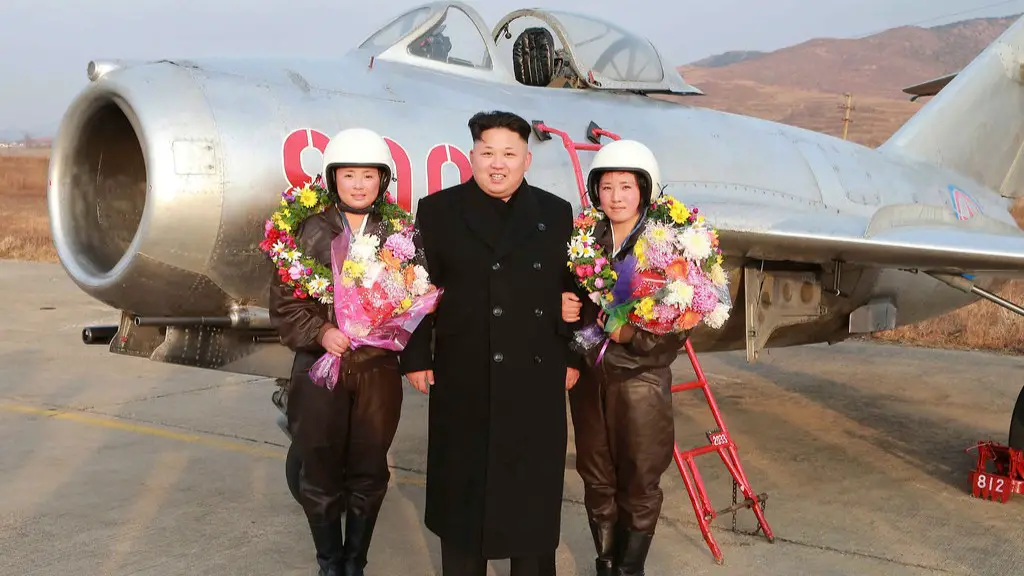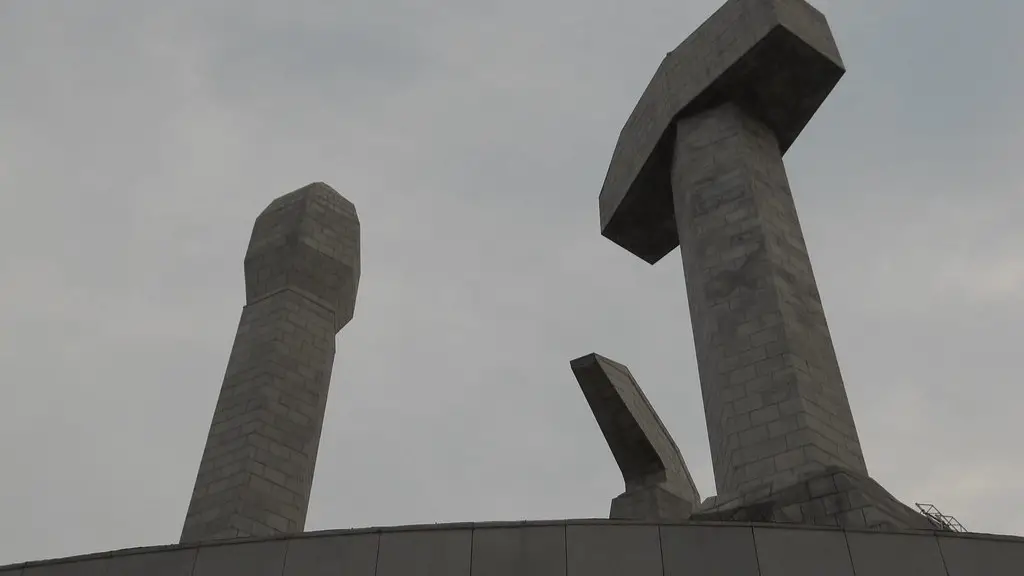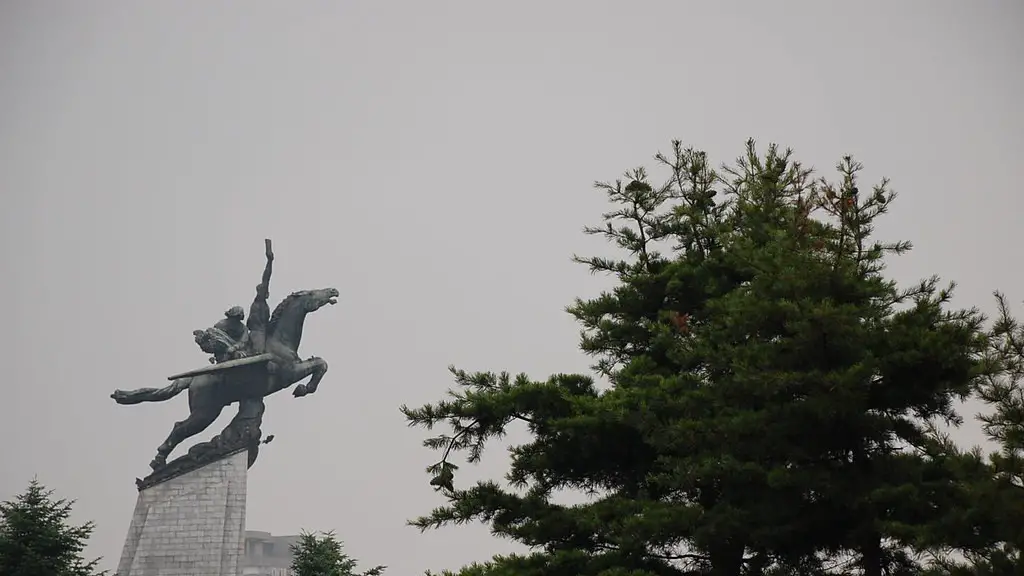Since the beginning of the Coronavirus pandemic, the world has been facing an abnormal situation. Most countries were forced to impose lockdowns, social distancing guidelines, quarantine measures and other emergency measures as part of their fight against the disease. But one country that hasn’t implemented such measures is North Korea. North Korea is known for its tight control on information and its lack of transparency, and this has led to confusing reports about its COVID-19 situation. So, is North Korea in lockdown?
At first glance, it seems that North Korea is not in lockdown. The country’s leader Kim Jong Un has been seen touring the country and visiting industrial sites, and there have been no reports of restrictions on movement. North Korean state media has also failed to mention any lockdowns or quarantines. However, the truth may be more complex.
According to analysts and experts, North Korea is likely to be in a ‘partial lockdown’. This means that while there is no total lockdown, some areas of the country may be in a state of high alert and people may be subject to restrictions on movement and other social distancing measures. For example, a news report from Radio Free Asia in April 2020 mentioned that people in Pyongyang were not allowed to leave the city without permission.
North Korea has also been putting in place other measures to try and stop the spread of the virus. It has closed its borders, increased health screenings and implemented regulations to prevent the gathering of large groups of people. In addition, North Korea has also been carrying out extensive testing for the virus, with over 25,000 tests taking place in April 2020 alone.
Despite these measures, there are still doubts about North Korea’s ability to contain the virus. The country has a weak health care system, and it is not clear how effective these measures are in preventing the spread of the virus.
Furthermore, there is concern that North Korea may be hiding the true extent of its COVID-19 outbreak. The country has been tight-lipped about the virus, with no publicly available data or information on the number of cases or deaths. This has led to speculation that North Korea is covering up the severity of the situation, which could have serious consequences if the virus spreads further.
To conclude, while it seems that North Korea is not in total lockdown, the country may be in a state of partial lockdown, with people subjected to restrictions on movement and travel. The country has also implemented other measures to try and contain the virus, though how effective these are is not clear. On top of this, there is concern that North Korea may be hiding the true extent of its COVID-19 outbreak, which could have serious consequences if the virus spreads further.
Background of North Korea
North Korea is officially known as the Democratic People’s Republic of Korea. It is a one-party state led by the Korean Workers’ Party, which has been in power since 1948. North Korea is officially a socialist state and is renowned for its extreme isolation, both economically and politically. The country is heavily dependent on international aid, with China being its largest partner. North Korea’s healthcare system is weak and inadequate, with the WHO estimating that only 1 percent of the country’s population has access to proper medical services.
North Korea has had a strained relationship with many of its neighbouring countries, including South Korea and Japan. It has also had notable conflicts with the United States, and is considered to be a “rogue state” due to its extensive human rights abuses. As a result of these conflicts, North Korea has been subject to extensive economic sanctions.
North Korea is known for its highly militarized state and its pursuit of nuclear weapons. The country’s isolationist policies has meant that it has limited contact with the outside world and has been reluctant to cooperate with international organizations. The government also has a tight grip on information and has limited freedom of expression.
Despite these restrictions, there have been some efforts over the last few years to open up the country and increase engagement with the international community. In 2018, North Korea held high-level talks with South Korea and the US, and the country has taken tentative steps towards economic reform. However, the country still has a long way to go before it can be considered open and democratic.
The Coronavirus pandemic has presented a serious problem for North Korea, with the country’s weak healthcare system making it vulnerable to the virus. In response, the government has implemented a series of measures to try and limit the spread of the virus. These include closing borders, implementing travel restrictions, increasing health screenings, and imposing regulations to prevent the gathering of large groups of people. The government has also been conducting extensive testing for the virus, with the state-controlled news agency KCNA reporting over 25,000 tests taking place in April.
The government has also been using propaganda to raise awareness of the virus and encourage people to follow guidelines. These include state television warnings about the “deadly virus”, radio broadcasts promoting social distancing guidelines, and billboards encouraging people to wear masks. The government has also been waging a “battle against rumors”, with KCNA publishing stories about people being jailed for spreading “coronavirus rumors”.
However, despite these measures, there are still doubts about North Korea’s ability to contain the virus. There is a lack of publicly available data on the virus, leading to speculation that North Korea is covering up the true extent of its COVID-19 outbreak. According to analysts, North Korea’s official figures on the virus are likely to be far lower than the actual numbers. On top of this, North Korea also has a weak healthcare system and limited access to medical resources, making it difficult to effectively combat the virus.
Overall, while North Korea has implemented some measures to try and contain the virus, the true extent of the outbreak in the country is unknown. This could have serious implications if the virus spreads further, due to the country’s weak healthcare system and limited access to medical resources.
The full impact of the Coronavirus pandemic on North Korea is yet to be seen. However, the virus has already had a significant impact on the country. The closed borders and travel restrictions have had a dramatic effect on the economy, with the wheels of the free market grinding to a halt. North Korea is already facing an acute food shortage and the crisis is likely to worsen if the virus is not contained. In addition, hospitals are under-equipped and understaffed, meaning that the healthcare system is unlikely to be able to handle a large-scale outbreak of the virus.
Furthermore, the virus has also had a psychological impact on the country. North Korea has a long history of isolation and paranoia, and this has only been exacerbated by the pandemic. State-controlled media has been sending out worrying messages about the virus, and this has led to a growing sense of fear and uncertainty. People are living in a state of paranoia and they are afraid to go outside or travel. In addition, the government has also been waging a “battle against rumors”, with people being jailed for spreading false information. This has only added to the sense of uncertainty and fear.
Overall, the Coronavirus pandemic has had a significant impact on North Korea. The country is already facing an acute food shortage, and the healthcare system is ill-equipped to handle a large-scale outbreak of the virus. In addition, the virus has also had a psychological impact on the country, with people living in a state of fear and paranoia.
International Response to North Korea’s Situation
The international community has been slow to respond to North Korea’s situation, due to the country’s difficulty in accessing aid and the strained relationship between North Korea and the international community. However, in recent months, there have been some signs of international engagement.
In particular, the United Nations has been taking steps to provide assistance to North Korea. In April 2020, it announced plans to provide emergency medical supplies and equipment to North Korea, and it has also been pressing for the country to be granted relief from the global sanctions regime. In addition, the United States and South Korea have also provided some limited support to North Korea, including food aid and communications equipment.
Overall, while the international community has been slow to respond to North Korea, there have been some steps taken to provide assistance to the country. The UN has been providing emergency medical supplies, and there has been some limited support from the US and South Korea.
Future Prospects
It is unclear what the future holds for North Korea. The country is facing a deteriorating economic and humanitarian situation, and it is not known how the government will respond to the crisis. It is also uncertain how the virus will spread in the country and what the long-term effects will be. It is thus difficult to make any predictions about North Korea’s future.
That said, it is possible that North Korea may be forced to make some changes in order to cope with the crisis. The country has already shown some tentative signs of openness and engagement with the international community, and it is possible that this could be expanded in the future. In particular, North Korea may be forced to open up its borders and allow for more international aid and assistance. This could in turn lead to further reforms and increased engagement with the international community.
Overall, the future of North Korea is uncertain, but it is possible that the country may be forced to open up and make some changes in order to cope with the crisis.
